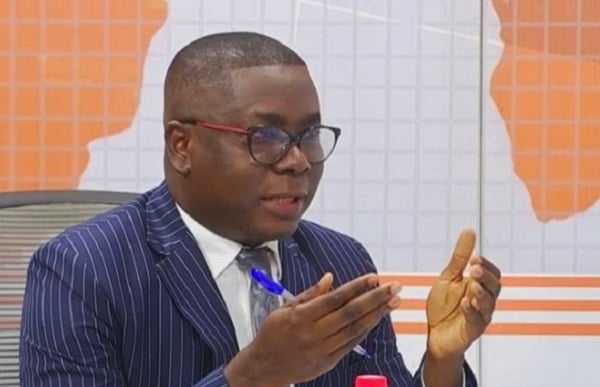The ongoing debate surrounding the Ghanaian economy and the factors contributing to its current state has taken a new turn with recent pronouncements by key political figures. Dr. Gideon Boako, Member of Parliament for Tano North and a staunch member of the New Patriotic Party (NPP), has publicly criticized the National Democratic Congress (NDC) for seemingly shifting its stance on the influence of global events on the nation’s economic challenges. This criticism stems from a statement made by Ibrahim Murtala Mohammed, the Minister of Environment, Science, Technology, and Innovation and an NDC member, acknowledging the significant impact of both the COVID-19 pandemic and the Russia-Ukraine war on Ghana’s economic performance. Dr. Boako argues that this admission contradicts the NDC’s previous narrative, which downplayed or outright rejected the notion that these global crises were primary drivers of Ghana’s economic woes.
Central to Dr. Boako’s argument is the assertion that the NPP government, during its tenure, consistently highlighted the role of these external factors in explaining the economic difficulties faced by the country. He accuses the NDC of engaging in “cheap propaganda” and deliberately misrepresenting the NPP’s position for political gain. According to Dr. Boako, the NDC’s prior rejection of the significance of the pandemic and the war demonstrates a lack of understanding of the broader global economic context and an attempt to unfairly blame the NPP for challenges beyond its control. He maintains that the NPP was transparent about the impact of these crises and never attempted to evade responsibility for managing the economy under these difficult circumstances.
Dr. Boako further emphasizes the NPP government’s economic achievements prior to the onset of these global crises. He points to a growth rate of 5.7% and a GDP exceeding one trillion cedis, claiming these figures represent a strong economic performance and a solid foundation for future growth. He contrasts this with what he perceives as the NDC’s current struggle to manage the economy, suggesting that the NDC’s recent acknowledgment of the impact of global events is a tacit admission of their own difficulties in navigating the current economic landscape. He challenges the NDC to build upon the “solid milestone” achieved by the NPP and demonstrate their ability to effectively address the ongoing economic challenges.
This public exchange highlights a deeper political debate surrounding the attribution of responsibility for Ghana’s economic situation. The NPP, through Dr. Boako’s statements, is attempting to solidify its narrative that the current economic challenges are primarily the result of unforeseen global events, inheriting a strong pre-pandemic economy. They are also attempting to expose what they perceive as the NDC’s opportunistic criticism and subsequent shift in narrative, suggesting a lack of consistency and a potential attempt to deflect blame.
Conversely, the NDC’s acknowledgment of the global factors, while seemingly conceding ground to the NPP’s argument, may also be interpreted as a strategic move. By acknowledging the impact of these external factors, the NDC might be seeking to demonstrate a more nuanced and realistic understanding of the economic situation, potentially positioning themselves as more capable of addressing the complex challenges ahead. Furthermore, by acknowledging the external pressures, the NDC may be trying to build a case for needing more time and different strategies to address the economic issues, implicitly suggesting that the current difficulties are not solely a result of their governance.
This ongoing debate underscores the significance of economic performance in the political landscape of Ghana. Both parties are vying to shape public perception and ultimately influence voter sentiment by presenting their own narratives about the causes of and solutions to the nation’s economic challenges. The exchange between Dr. Boako and the NDC, through Minister Mohammed’s statements, represents a crucial battleground in this larger political and economic narrative. This public back-and-forth emphasizes the importance of transparency and accountability in economic policy and the need for a comprehensive understanding of the multifaceted factors that contribute to national economic performance.














